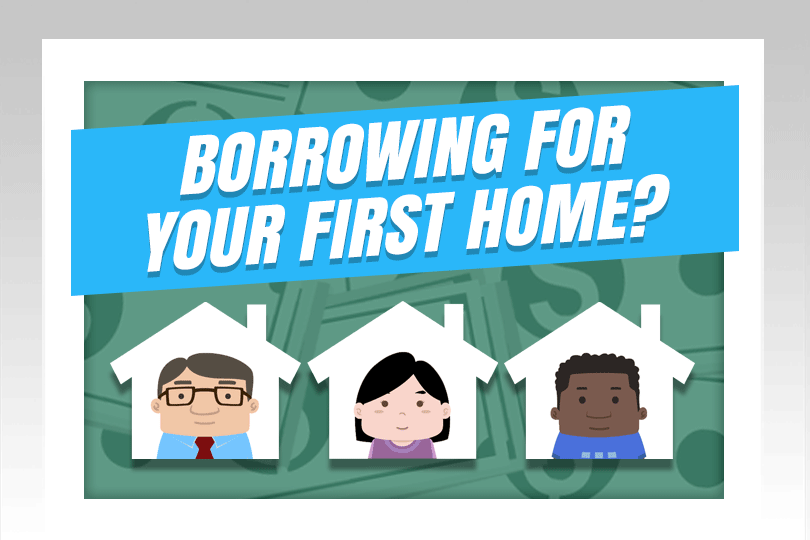Fixed Rate Versus Adjustable-Rate Mortgages
March 21, 2021
A Fixed Rate Loan is one with an interest rate that stays the same for the entire life of the loan. Your principal and interest amount changes from month to month as you pay down the loan, but the total amount you pay in interest is final, making it easier to budget and plan. With a fixed rate home loan, your amortization schedule is clear and complete.
An Adjustable-Rate Mortgage, commonly referred to as an ARM, gets more complicated. An ARM has an interest rate that changes over the loan term. The rate is set below the market rate for an initial, introductory period, which could be up to 10 years. After this initial period ends, the ARM will adjust.
To fully understand how an ARM works, there are a few key terms you will need to know:
- Adjustment Index: The interest rate adjustments on your ARM are dependent on an index that your lender uses as a benchmark. The FHA accepts market index figures of the Constant Maturity Treasury (CMT) index or the 1-year London Interbank Offered Rate (LIBOR).
- Adjustment Frequency. This is the between each interest-rate adjustment. For example, the FHA’s ARMs adjust annually.
- Margin: This is the number that is added to the index rate to determine your interest rate and is disclosed when you sign your loan.
Which One Works for Me?
There are pros and cons to both, the fixed rate loan, and the ARM. A fixed rate mortgage gives borrowers security of knowing how much they owe and the freedom to plan and budget for the future. However, this also means that they can be stuck paying a higher rate in a few years when the market rates drop, unless they choose to refinance.
With its lower interest payments, an ARM is considerably cheaper than a fixed rate mortgage, at least while the introductory fixed-rate period lasts. But borrowers are taking on the risk of a fluctuating market with rising rates in the future.
So which loan type is best? It comes down to each borrower’s needs and plan for the future. It helps to as yourself some questions when deciding.
How much can you afford?
If you are thinking about an ARM, it is important to be realistic. Run the numbers for a worst-case scenario and calculate your highest possible monthly payment. You might need to save during the initial low-interest period and put money away in case rates go up, or even make larger payments during that time so that the total loan is smaller when the interest rate adjustment occurs.
How long will you live in the home?
If this is your starter home, and you only intend to live there for a short amount of time anyway, it makes sense to sign up for an adjustable-rate mortgage and take advantage of the low rates during the introductory period.
In what direction are interest rates heading?
Talk to your loan officer and get their opinion on the market rates. Study trends and decide whether you can take on the risk.
Once you evaluate your needs and answer these questions for yourself, you will have a clearer idea of which option to choose. The FHA offers fixed and adjustable-rate loan options to borrowers and has the same qualification guidelines for both types. Contact your loan officer to take the first step!
------------------------------
RELATED VIDEOS:
Your Mortgage Payment Schedule Is Called Amortization
Information About the Balloon Payment
Reliable Borrowers Can Qualify for a Cash-Out Refinance

FHA Loan Articles
May 19, 2025When you get ready to commit to buying your dream home, the FHA appraisal is necessary to make certain the house you want is suitable for the loan and to know its actual fair market value. Is it in good repair? Does it have termites or other pests? Is it near a high-noise environment like an airport or bus terminal? There are many issues to consider, and the FHA appraisal process is designed to address them, as we'll explore.
May 14, 2025When you buy a home with an FHA mortgage, you must pay for both mortgage insurance and insurance to protect your property while paying on the loan. There are important nuances to these insurance policies to know before you start. What's the difference between insurance against water damage and flood insurance? That's just one example of the "hidden" expenses of buying your new home to budget for.
May 13, 2025Buying a home with an FHA mortgage means you'll need to know the FHA guidelines about the types of properties you can purchase with an FHA single-family home loan for residential purposes. How well do you understand these rules? Are you truly ready to start house hunting? We examine some key aspects of the process.
May 12, 2025FHA single-family home loans require a minimum 3.5% down payment for typical transactions. Saving for this requires planning and dedication, but it’s not impossible to save enough to make the down payment. How do people typically budget and save for this? Your financial needs and goals will play a big role in how much you decide to set aside for your new home, but here are some options to think about...
April 30, 2025 In a previous post, we discussed why FHA borrowers should carefully consider whether paying for discount points truly serves their best interests, focusing on factors like short-term homeownership, opportunity cost, FHA mortgage insurance, and the prevailing interest rate environment. Discount points are an option for borrowers willing to pay a fee to lower the interest rate by a set amount. This is not right for all borrowers, and you don't want to pay for points you won't benefit from during the loan term.







